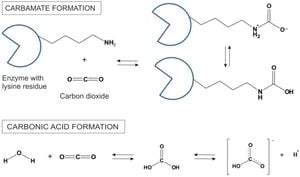On January 31, 2025, Liu Lijun, a Chinese graduate student at the University of California, Los Angeles (UCLA), had her student visa revoked after her involvement in organizing pro-Palestine rallies. This unprecedented action came as part of the Trump administration's broader crackdown on what it perceives as rising antisemitism linked to pro-Palestinian activism on U.S. campuses, particularly following the conflict between Israel and Hamas, which escalated after October 7, 2023.
According to reports from The Telegraph India, Liu's visa revocation is one of the first instances under the newly instituted executive order signed by President Donald Trump. This order seeks to combat antisemitism and prevent foreign students from participating in demonstrations supporting Palestinian causes. It delineates harsh penalties for international students, especially those purportedly connected with Hamas, compelling federal agencies—including Education, State, and Homeland Security—to monitor and report the activities of these students.
The directive explicitly states its intent: "Come 2025, we will find you, and we will deport you," Trump declared, emphasizing his administration's objective to swiftly address perceived threats stemming from noncitizen college students engaged in political activism. Under the new policy, the Department of Justice has been instructed to aggressively prosecute activities deemed as antisemitic and to take immediate action to revoke student visas of individuals classified as "Hamas sympathizers." Such sweeping measures have resurrected the contentious intersection of immigration, political speech, and civil liberties.
During the height of peaceful protests addressing Israel's military actions, Liu was among hundreds of UCLA students demonstrating against the conflict. The tensions reached their peak earlier this month when police action led to over 100 injuries during law enforcement's crackdown on student encampments associated with the protests. Activists hosted these demonstrations to voice their dissent against what they viewed as unjust actions toward Palestinians. Many observers expressed alarm at the aggressive tactics employed by law enforcement, which included the use of flash-bangs and batons.
Following these incidents, Trump's administration has not only reinforced its stance on pro-Palestinian activism but has indicated intentions to characterize such movements as dangerous. The executive order necessitates recommendations from federal bodies within 60 days on how to monitor activities of international students—reflecting growing fears of what the administration labels as radicalism spreading within academic institutions.
Reactions to the executive order have been swift and vociferous. The Council on American-Islamic Relations (CAIR) condemned the action, arguing it significantly threatens First Amendment rights. They articulated concerns about free speech and the targeting of peaceful protests, warning of the dangers posed by conflation between activism and antisemitism. "The Trump administration’s attempt to smear... is... an attack on both free speech and the humanity of Palestinians," CAIR stated.
Critics have warned of the chilling effects this policy could have, particularly on international students who engage peacefully with issues of global significance. Carrie DeCell, senior staff attorney at the Knight First Amendment Institute at Columbia University, underscored the concern, declaring, "Deporting non-citizens on the basis of their political speech would be unconstitutional."
The climate for students protesting issues related to the Israeli-Palestinian conflict has become increasingly fraught with tension, particularly after the U.S. saw waves of demonstrations across various campuses, resulting in over 3,000 arrests nationwide. Advocates for civil rights have expressed alarm over what they see as politically motivated consequences for students who choose to engage with global justice movements.
Trump's administration has taken decisive steps to escalate wartime rhetoric against pro-Palestinian protests, often dismissing such activism as radical. Many have compared his language—demanding the "cleaning out" of Gaza—to policies reminiscent of the very apartheid systems many activists are protesting. Trump's son-in-law, Jared Kushner, even alluded to the potential economic benefits of Gaza's reconstruction, referring to land as "valuable" and raising eyebrows over the insensitivity of such comments amid human suffering.
This climate of repression has raised fears far beyond campus boundaries. The administration's assertion of authority over universities, combined with planned investigations and potential funding repercussions for institutions perceived to harbor dissenting voices, raises significant questions about how freedom of expression will survive amid these policies.
The executive order empowers educational institutions to surveil foreign student activities, reinforcing concerns among advocates for civil rights who fear this infringes on the foundations of academic freedom. Jenna Leventoff, senior policy counsel at the ACLU, warned, "Instead of addressing antisemitism on campus, this misguided legislation would punish protected political speech."
With the specter of deportation hanging over dissenting international students like Liu, the stakes have never been higher. The repercussions of Trump's stance on pro-Palestinian activism are likely to reverberate as voices calling for justice continue to be met with increasing hostility and repression.



